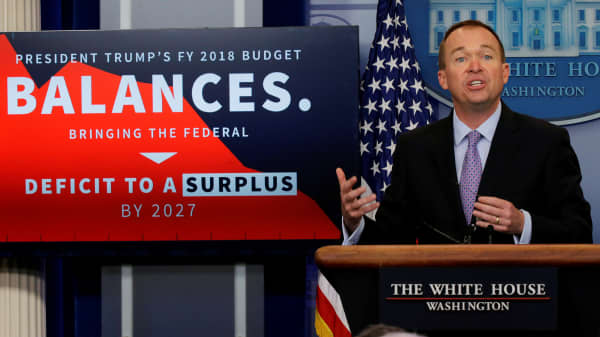The White House has pinned its budget agenda on hitting — and maintaining — a 3 percent economic growth target. But recent history suggests that's a tall order, and the U.S. risks inflating its debt if the growth falls short.
Of the last 11 administrations, only six have presided over periods of sustained growth averaging more than 3 percent. And since 2000, the U.S. economy has slowed to an average growth rate below 2 percent.
President Donald Trump's budget also assumes higher tax revenue — even after deep cuts in both individual and corporate tax rates — based on the idea that an acceleration in growth will create a larger base of revenue subject to taxes.



